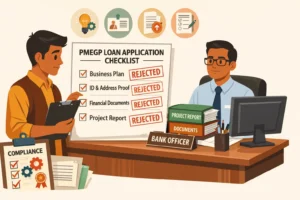In international trade, a Letter of Credit (LC) is one of the safest payment methods, providing security to both exporters and importers. However, once an LC is issued—especially an Irrevocable LC—there is extreme difficulties in cancelling a letter of credit and it is also a very delaying process.
I had experienced this firsthand when an importer opened an Irrevocable LC in my company’s name, but due to unavoidable circumstances, the export transaction could not proceed. What followed was a lengthy and frustrating struggle to cancel the LC, despite my full cooperation.
In this blog post, I’ll share:
- Why canceling an LC is so difficult
- My personal experience with LC cancellation
- The key hurdles we faced
- Lessons learned for importers and exporters
Why is Cancelling a Letter of Credit is if its irrevocable, So Difficult?
An Irrevocable LC is called “irrevocable” for a reason—it cannot be canceled or amended without the consent of all parties involved, including:
- The Exporter (Beneficiary)
- The Importer (Applicant)
- The Issuing Bank (Buyer’s Bank)
- The Advising/Negotiating Bank (Seller’s Bank)
Even if one party disagrees, the LC remains active, and the funds remain blocked.
Key Challenges in Cancelling a Letter of Credit:
✔ Strict Banking Procedures – Banks follow strict compliance rules before releasing blocked funds.
✔ Documentation Delays – Even with consent, banks may request multiple documents.
✔ Time-Consuming Process – It can take weeks or even months for full cancellation.
✔ Financial Impact on the Importer – The importer’s margin money remains locked until cancellation.
You may also like to read :Irrevocable Letter of Credit (LC): The Safest Payment Method in Export Business
My Personal Experience of Cancelling a Letter of Credit: A Cancellation Nightmare
Here’s what happened in my case:
- The Importer Opened an Irrevocable LC
- The buyer deposited 100% margin money with their bank to issue the LC.
- The LC was opened in my company’s name as the beneficiary.
- Unavoidable Circumstances Prevented the Export
- Due to external factors, the export could not proceed.
- I was ready to cancel the LC since the deal was not happening.
- I Provided Written Consent for Cancellation
- I sent an official email and signed documents to my bank, agreeing to cancel the LC.
- I assumed the process would be quick since I, the exporter, had no objections.
- Unexpected Delays & Importer’s Frustration
- Despite my consent, the issuing bank took weeks to process the cancellation.
- The importer repeatedly followed up, saying their money was stuck.
- They explained that in their country, banks block the full LC amount upfront, so their funds were frozen.
- Finally, After a Long Battle, the LC Was Cancelled
- The process took much longer than expected.
- The importer suffered financial stress due to the blocked funds.
- Neither of us was at fault, but the system made cancellation painfully slow.
Key Lessons Learned about Cancelling a Letter of Credit
1. An Irrevocable LC is Truly “Irrevocable” Without Unanimous Consent
- Even if the exporter agrees, banks may still delay due to internal checks.
- Always confirm cancellation policies with the issuing bank before opening an LC.
2. Importers Must Be Prepared for Margin Money Blockage
- Many banks require 100% cash margin to open LCs.
- If the deal falls through, the money remains locked until full cancellation.
3. Clear Communication Between Exporter & Importer is Crucial
- In my case, the importer thought I was delaying the process, but I had already submitted my consent.
- Misunderstandings can worsen the situation—transparency is key.
4. Think Twice Before Opening an LC – It’s Not Easy to Reverse
- An LC should only be opened after absolute certainty of the transaction.
- If there’s any doubt, consider alternative payment terms like advance TT or documentary collections.
Short Clickable References & Sources
- Reserve Bank of India (RBI) – Export & Import Guidelines
https://rbi.org.in - DGFT – Directorate General of Foreign Trade, India
https://dgft.gov.in - EXIM Bank of India – Trade Finance & Letter of Credit Support
https://eximbankindia.in - International Chamber of Commerce (ICC) – UCP 600 Rules for LCs
https://iccwbo.org
Conclusion: Proceed with Caution When Dealing with LCs
My experience taught me that canceling an LC is far more difficult than opening one. Even with full cooperation from the exporter, banks have rigid procedures that can delay the process, causing financial strain on the importer.
Key Takeaways for Traders:
✅ Irrevocable LCs are binding – Cancellation requires all-party consent.
✅ Banks move slowly – Be prepared for delays even with proper documentation.
✅ Margin money gets blocked – Importers must ensure they can handle frozen funds.
✅ Explore alternatives if unsure – If the deal is uncertain, consider safer payment terms.
For anyone dealing with LCs, patience and thorough planning are essential. Always consult your bank and trade finance experts before committing to an LC to avoid unnecessary complications.
✅ About the Author (BusinessZindagi Style)
Tabrez
Writes data-backed content on MSMEs, startups, government schemes and real business journeys. Focused on simplifying entrepreneurship for India’s next generation of founders.





